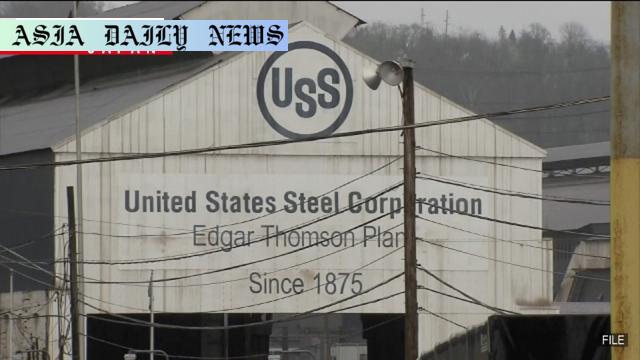Nippon Steel’s acquisition of US Steel progresses with measures to address security concerns.

Progress Towards Nippon Steel’s Acquisition of US Steel
In recent developments, Nippon Steel, one of Japan’s largest steel manufacturing firms, has gained significant traction in its efforts to acquire US Steel. According to statements from US Commerce Secretary Howard Lutnick, the deal might receive governmental approval, provided certain measures are in place to address national security concerns. This strategic partnership not only aims to integrate two steel industry giants but also highlights the growing interdependence of global markets and the collaborative measures required to mitigate geopolitical risks.
US Government Proposes Conditions
The US government, in an effort to safeguard national interests, has reportedly outlined key measures that Nippon Steel must comply with before the acquisition is finalized. Among the proposed conditions is the need for the company to appoint an American chief executive officer to lead the entity post-acquisition. This measure seeks to ensure that the newly formed corporate entity respects and adheres to US economic and security policies.
Timeline and the Stakes Involved
Bloomberg reports that negotiations between Nippon Steel, US Steel, and the US government are on track to wrap up by June 18. This deadline signifies the importance of swift decision-making amidst the competitive dynamics of the global steel industry. Should the deal materialize, it would not only establish a new industry leader but also strengthen trade relations between Japan and the United States.
Economic and Strategic Implications
If successful, this landmark deal would pave the way for significant economic benefits. Experts project multi-billion dollar benefits through operational synergies, technological transfers, and market access. However, as with any strategic alliance, challenges lie ahead, especially in integrating corporate cultures across international boundaries. Additionally, the deal underscores the necessity of balancing economic collaboration with national security priorities.
Conclusion
Nippon Steel’s proposed acquisition of US Steel serves as a case study in international business negotiations underscored by geopolitical considerations. The careful balancing act of fostering economic integration while safeguarding national security could set a precedent for future cross-border deals. This development warrants close observation as it unfolds in the coming months.
Commentary
The Intricacies of Cross-Border Acquisitions
Cross-border acquisitions, such as Nippon Steel’s pursuit of US Steel, highlight the complexities involved in such transactions. On one hand, the economic potential of such mergers cannot be understated. Regional cooperation, innovation, and enhanced production capabilities are significant benefits to be gained. Yet, these deals rarely proceed without pushback, especially when they touch on concerns of national security.
Navigating the National Security Landscape
The requirement for an American CEO is a calculated move by the US government. It serves as a symbolic gesture to reassure stakeholders that national interests will remain protected. While such conditions may appear as barriers to business, they often ensure harmony between economic progress and sovereignty. In this specific case, the blend of Japanese expertise and American leadership could potentially lead to a stronger, more robust steel industry capable of addressing global competition.
Strategic Impacts Beyond Economics
Beyond the economic ramifications, this potential deal would also have important strategic implications. Strengthening ties between two global economies signals a commitment to collaborative growth in an increasingly competitive global arena. It is crucial, however, to keep a watchful eye on this negotiation as it might set a precedent for how nations manage cross-border transactions amidst rising geopolitical tensions.
Closing Thoughts
Ultimately, Nippon Steel’s acquisition of US Steel, if finalized, will stand as a landmark moment for international business and diplomacy. The ability to navigate complex challenges and bring strategic stakeholders to the table will serve as an example for future endeavors of this magnitude. As globalization continues to integrate industries worldwide, balancing economic gains with national security remains a pressing concern, but deals like these offer a blueprint for achieving equilibrium.


